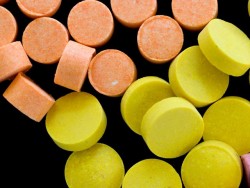
According to the National Institute on Drug Abuse, relapse after drug addiction is a likely occurrence even with a comprehensive drug treatment program. This means that it is important to understand what you can do about an addiction relapse. The best things that you can do are prevent the relapse before it happens and practice good relapse after care in the event of a relapse.
Prevention of a Relapse
Preventing a relapse is always preferable to treating a relapse after it has happened. There are several things to consider when attempting to prevent one. The National Institute on Drug Abuse states that the chances of relapse are similar to those of most chronic illnesses such as hypertension, asthma, and diabetes. Knowing this, you can prepare yourself to face the possibility of a relapse and recognize behavior that can lead to one. To avoid relapse there are several things you should do.
Remove Triggers if Possible
Removing or avoiding the things that trigger the desire for the drug that you are addicted to can help. You can avoid some triggers but there are ones that are unavoidable. Avoidable or removable triggers are usually environmental and social instances such as:

Stay away from places that might tempt you into doing drugs.
- Situations that you previously used in such as bars, clubs, and friends homes,
- People that you previously used with,
- Areas that use of the addictive substance is common and expected,
- Times of day that you used during, although you cannot avoid the time you can avoid the activity you were doing at that time by doing something completely different. If you use right after dinner than change your dinner time or have something planned for afterwards. Signs
- Objects that you use to get intoxicated can also be easily avoided by getting rid of them or changing them significantly,
- Dishonesty, argumentativeness, and self-pity, these triggers can be avoided by tackling them one at a time as they come up.
There are some unavoidable triggers. Most unavoidable triggers relate to emotion and circumstance. Some examples of unavoidable triggers are:
- depression,
- fear of the unknown or life without the addiction,
- frustration over the slow process of recovery,
- loneliness and isolation from friends and family,
- cockiness, and
- complacency.
You may not be able to completely avoid these triggers but you can lessen the chance of a relapse because of them. You can do this by exercising, keeping fit, hanging out with understanding friends and family, having a sponsor or other trusted person, and by eating right and engaging in healthy behaviors.
Activities that help Avoid Relapse
There are some things that you can do that help avoid a relapse aside from removing triggers.
- You can attend meetings, live in a sober house, or facility.
- You can collect friends who do not engage in your addiction.
- You can exercise, join clubs, and develop productive hobbies.
- You can talk to your sponsor or join group outpatient therapy.
Recognizing the Stages of Relapse
Psychology Today mentions that there is no black or white when it comes to relapsing. There are many shades of gray and relapse behaviors for some might not trigger others. Some of these behaviors are simple such as adding another addiction in place of the original, isolating yourself, giving into fear, not having a self-change strategy, and not recognizing the relapse process.
The relapse process starts with emotional relapse. Negative emotions such as fear, anxiety, and self pity have a deep impact on mental state. Asking for help at this stage is crucial. Although you might not initially feel on the verge of relapse, you could be heading in that direction.
Next is mental relapse. During mental relapse you may think about the past, the good feelings and friends you had, or dream of using. In this stage, you are actively thinking of relapse.
The final stage of relapse is physical relapse. In physical relapse, you drive to your dealer or acquire your drug of choice. This stage leads to actual relapse. By recognizing these stages you can stop a relapse before it starts.
If you Relapse
If you do not take steps to prevent relapse, which is the best course to take when attempting to do something about addition relapse, you will probably end up using again. If you do use again, the first thing that you need to do is forgive yourself. Most addicts relapse at least once during their treatment. The key is to remember that relapse does not mean failure. It is estimated that 60% of addicts relapse. The feelings of failure and guilt could cause you to continue using as can fear of going through withdrawal.
- Admit to yourself that you slipped and move on.
- Make a timed commitment even if it is for an hour, a day, or a week.
- Connect spiritually or physically with someone who understands your addiction in a forgiving environment.
- Go to a meeting, set up a counseling appointment, or consider checking yourself back into inpatient briefly, depending on how severe the relapse is.
- Examine what was working and what cause the relapse. See if you can find the trigger that made you relapse in the first place and try to avoid it specifically.
It is important to understand that addiction is very powerful but the longer you remain abstinent the less of a chance you will relapse. Addiction relapse may be common but there are ways to prevent it by recognizing the triggers, signs, and stages of relapse. Remember after a relapse recovery is still possible. It does get easier as time goes on.


